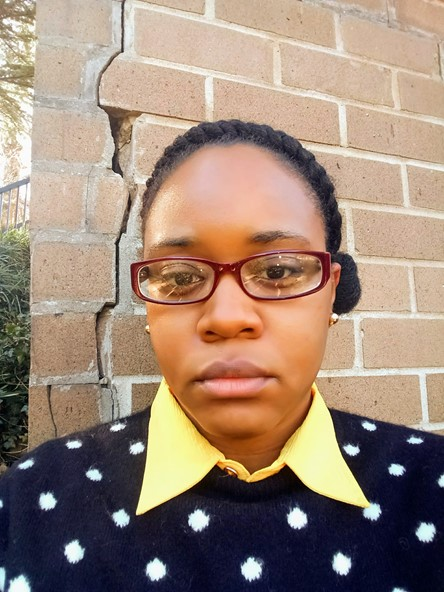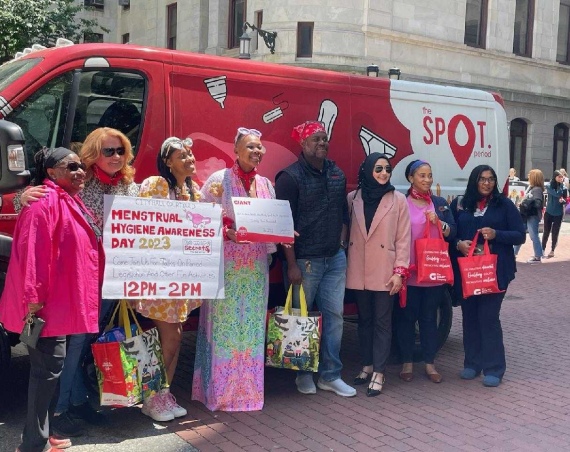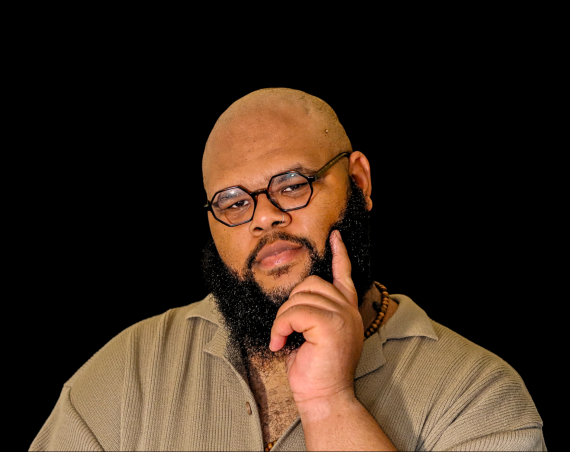
Menika Dirkson didn’t know exactly where her love for history would take her.
But the Germantown born-and-raised Dirkson took the journey all the way to a Ph.D., specializing in African American history and race and policing in the 1970s in Philadelphia. She wants to make history accessible to everyone and use her academic path to show Germantown neighbors how our neighborhood has evolved.
“Growing up in Germantown, attending Lingelbach in elementary, we would go tour the historic houses,” said Dirkson, recalling how her love of history was shaped. She toured historic spots like Johnson House and Cliveden House, and always had access to plenty of books on history and a variety of subjects at home and through the library.
Dirkson was the first in her family to go to college and started studying business at Villanova University to ensure she could get a job after graduating. But she realized within a month it wasn’t for her, and switched over to history. By the time she went to get her masters she knew she wanted to be a historian, and went to Temple University to get a Ph.D.
It wasn’t always easy. Dirkson said Villanova’s general student population was about four percent Black, and there was also a class difference. Temple University was more diverse, but still didn’t have many women in her program. She said the academic work was something she could handle but the emotional part of the academic tract, both in Villanova and Temple, was challenging.
She had the support of family, community members, and great teachers in her neighborhood schools growing up, always telling her they believed in her. “The main challenge was always having to remember (their support),” Dirkson said. “Because they weren’t there. They weren’t in the classroom or on the train ride to and from the university, they weren’t there during the midterms or finals or during the interpersonal interactions that I would have with all the students that were different from me.”
Dirkson said people in her program advised her to quit. To get a different job, or to go into a different field. They tried to convince her that the job market was bleak for her field. Dirkson refused to stop. By the time she graduated she said she was one of the only Black students in her program. She said folks telling her to give up didn’t understand that she didn’t have generational wealth to fall back on. She knew she had to see it through. And she saw how important it was to relate history to the community today.
Dirkson also became an active member of the Friends of Coleman Library group, helping create social media content for the branch and coordinate programs to raise funds for poetry workshops and buy books for book clubs. The organizing for the group included fundraisers for programs and supplies that weren’t in the library’s budget. It connected to what Dirkson learned in her research.
“When I got into the Ph.D program [I was] learning more about how policing often eats up the budget of the city government’s plans for the year.” She continued, “there should be more pressing on city officials to put more funding into communities and social welfare programs versus policing or other things, and just knowing this organization was also involved in doing petitioning, going to city council meetings around the time of budget hearings, and knowing I could do that and also support my neighborhood and thinking that would even benefit generations that are after me that are living in Germantown is how I got fully invested in the group,” Dirkson said.
Dirkson’s involvement in the Coleman Library and its programs, and her research into community activism in Philadelphia in the 1970s all intertwined for her. She sees how the stories and histories of community activists and their responses to neighborhood challenges back then can help shape solutions for today’s Germantown.
One example that Dirkson points to is community activist and organizer Herman Wrice. In the 1960’s, he and Anthony Jenkins co-founded the Young Greats, a society in the Mantua neighborhood of Philly. Dirkson points to his direct activism — confronting drug dealers in his neighborhood, creating recreational programs and a daycare center for parents and an education program for mothers, as an inspiration for community organizers today.
Dirkson recently got a job at Loyola University in Maryland, and this fall will be an assistant professor of African American history at Morgan State University, a historically Black college. There’s other exciting news to come, but she’ll tell you if you see her at the library.



